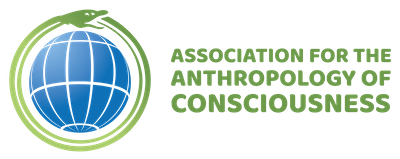Saturday, November 21, 2015: 8:00 AM-9:45 AM
401 (Colorado Convention Center)
The hallowed principle of linguistic relativity has been with anthropology from the start, representing one of the signature theoretical axioms of the field. Despite great advances in other disciplines, such as cognitive science, many linguistic anthropologists now shy away from the supposed controversy surrounding the topic, perhaps in part due to the powerful rhetorical effect of several popular works in the anti-relativist mainstream, such as those by Steven Pinker and John McWhorter. The purpose of this panel is to show that much of our work in linguistic anthropology continues to resonate with the principle of linguistic relativity in the deepest sense, given our sustained professional interest in how language shapes thought, perception, and action in everyday social encounters. The panel opens with a paper on Chinese languages by Todd Sandel, which engages with the question of language and thought—not in the abstract—but during the course of everyday social interaction. Sandel’s work is based on long-term fieldwork and language-use in dialogical social settings, where worldview is negotiated face-to-face, not set in stone by grammatical constraints. The next three papers address classic Whorfian themes in relation to current theoretical discussions. Based on long-term fieldwork with Chol Maya, Lydia Rodriquez examines the construction of time and reference in relation to the field of discourse analysis, with particular attention to culturally specific narrative structures. Yuki Tanaka-McFarlane follows suit with a poignant paper on the role of emotion in language revitalization, where the speaker’s attachment to restoring ancestral worldviews provides a powerful ideological motivation for learning a heritage language. Next, turning the whole question of linguistic relativity on its head, Leonard engages with local conceptions of both “language” and “worldview,” which shift significantly from one community to the next. All three of these papers attest to the continuing relevance of the linguistic relativity principle in the sphere of endangered language research, only further relativizing the question of linguistic relativity by engaging with local ideologies and ontologies. The final paper, by Sean O’Neill, addresses the many racist worldviews that circulate in everyday language. The approach is inspired by Jane Hill’s well-publicized work on racism, though with an explicit Whorfian twist, with an emphasis on the symbolic violence of everyday speech and related processes of discrimination in daily life, physical brutality included. Given the awesome power of language in shaping perceptions and related actions, the paper proposes that an antidote can also be found in the realm of speech, especially in the realms of consciousness-raising poetry, oratory, and music. The panel co-chairs, by Dr. Michael Silverstein and Dr. Sean O’Neill, have both written extensively on the principle of linguistic relativity, in terms of its roots and its continuing relevance to anthropological discussions of symbolic realities. Our discussant, Jocelyn Ahlers is well versed in both linguistics and anthropology and has brought the insights of cognitive linguistics to bear on language revitalization in her own work.
This session would be of particular interest to:
Practicing and Applied Anthropologists, Students, Those involved in mentoring activities
Organizers: Sean P O’Neill (University of Oklahoma)
Chairs: Michael Silverstein (University of Chicago) and Sean P O’Neill (University of Oklahoma)
Discussants: Jocelyn C. Ahlers (California State University, San Marcos)
8:00 AM
Is All Chinese the Same? Unpacking the Myth of a Unified Cultural and Linguistic “China” Todd L Sandel (University of Macau)
8:15 AM
Can “Fashions of Speaking” Affect Thought? an Ethnopoetic Analysis of a Chol Maya Story Lydia Rodriguez (SUNY Potsdam)
8:30 AM
Reconsidering the Role of Language Documentation from Linguistic Relativity Perspectives Yuki Tanaka (Southern Illinois University, Carbondale)
8:45 AM
Relativizing “Linguistic Relativity”: The Relationship of Myaamia Language and Worldview Wesley Y Leonard (Southern Oregon University)
9:00 AM
A Whorfian Perspective on Racist Discourse: Hurtful Words That Shape Perception and License Harmful Social Action, … and What Can be Done to Revervse This Process Sean P O’Neill (University of Oklahoma)
9:15 AM
Discussant Jocelyn C. Ahlers (California State University, San Marcos)
9:30 AM
Discussion
